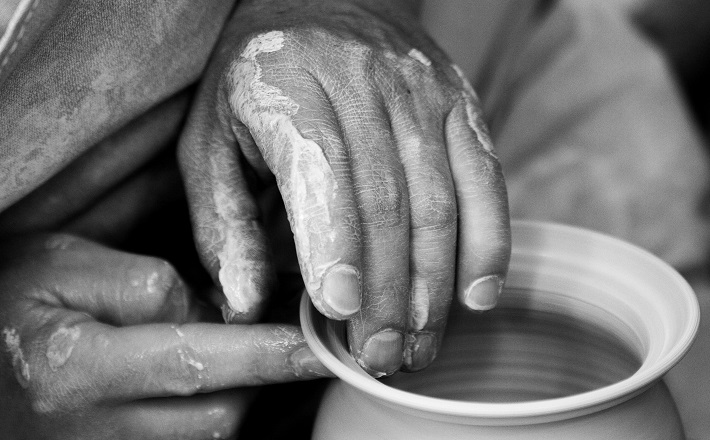Commentary on Isaiah 64:1-9
Isaiah 64:1-3 depicts God as the one who “tears open the heavens” and causes wildfire to sweep through brush.
We had enough of these images this past summer. The heavens opened over Houston, Florida, and the Caribbean, while fires raged from Oregon to southern California. The terrifying powers of natural disasters have reminded us of the fragility of human life. Like the ancient poet, we affirm that we are not in control.
Isaiah 64 arises from a very different historical context, however. The material in the final eleven chapters of the book seem to reflect challenges that the Israelites faced during the Persian period. Some Israelites displaced by Babylonian aggression had now returned to Jerusalem under Persian sponsorship. The Israelites who had not been displaced clashed with this immigrating group over questions of status, social standing, and, ultimately, political and religious authority.
Contemporary readers of this material should understand it in the context of overriding colonial power. Persia remained the real arbiter of power. This local tension reflects the way that colonization reconfigures group identity, not just in relation to the external colonizing power, but also in relation to each other. With the rebuilding of the temple, which families should serve as priests? Who has political authority? Did God reject the Davidic dynasty completely, or does the covenant with David remain in effect? Persian period texts reflect these tensions. The conflict is overtly addressed in Isaiah 63:16 just prior to this poem.
This context raises questions about the identification of different groups in this poem in chapter 64. The speaker asks God to demonstrate divine might to their enemies, but are those enemies external to Israel, or internal? The tenor of the poem changes in verse 5b, where the poet depicts disaster as punishment for the sins of the Israelites. This suggests that the poem as whole asks God to step in and resolve internal clashes over identity.
While this section of the poem ends with a testimony to how feeble humans are compared to God. “We are the clay, and you are our potter” (Isaiah 64:8), the reading closes with a plea that God’s anger subside. Verses 5-9, then, attribute disasters, natural or human-made, as punishments from God for sinful behavior. It is exactly at this juncture that the text becomes difficult for modern audiences to accept.
We might like to think we are far from this way of thinking, yet many of us would attribute our own contemporary natural disasters of storm and fire to our own ecological sins that have affected weather patterns. Have some of us also “prayed” for these disasters to convince those who do not believe in human-induced climate change? We may be more akin to the ancient audience than we think.
Reading this passage at the beginning of Advent reminds us that we are not in control and that our relationship with God needs healing. Our sin too often manifests in our attempts to keep God in a box that we can manage, taming God’s power, but the poem reminds us that God cannot be contained. And, thank goodness for that, because that means that God’s grace can also not be contained or circumscribed.
The poem ends in hope. The final verse re-affirms our identity as belonging to God, but it is the penultimate verse that catches the imagination. We are clay, God is the potter. We are just an inanimate lump with no purpose without God. God not only has the power to mold us (after all, this is a little thing), but actually wants to mold us. In fact, God wants to mold us in the divine image and likeness, a reality made clear when God molds the divine self on Christmas day as an impoverished, displaced infant. God becomes the clay.
Perhaps the rush to Christmas is the rush past the painful reality that makes the metaphor of Christmas spectacular. Luther and other Reformers understood this five hundred years ago. The recognition of how powerless we actually are frees us. It frees us for wonderment, gratitude, and the elation of a childhood Christmas morning when the world seemed magical.
At the beginning of Advent, then, this poem asks us to surrender. Stop fighting to be good or better. Stop worrying about being more righteous or enlightened. Stop thinking we alone can make Christmas special. Stop rushing past the hard lessons. After all, “We all fade like a leaf.” That is, until God claims us as sacred clay.


December 3, 2017